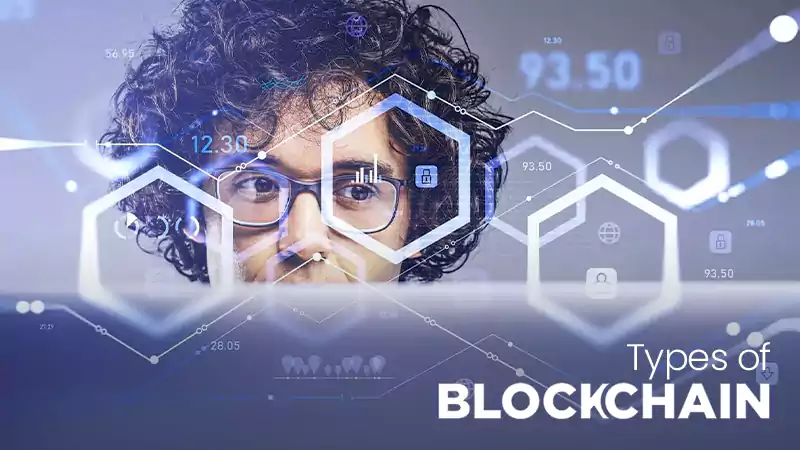How is Blockchain Used by Walmart in the supply chain?
Headquartered in Bentonville, the U.S., Walmart is an American multinational retail corporation that operates a chain of supermarkets and departmental stores in America. Walmart at present, has more than 10,000 stores in around 24 countries across the globe and more than 2 lacs employees working for the corporation.
To tackle the significant obstacles in the supply chains or multinational services, companies like Walmart, IBM, etc., leverage blockchain technology. This technology is mainly used to secure the storage and traceability of transactions, enabling seamless information sharing between supply chain partners using an immutable and decentralized ledger.
These companies designed a cutting-edge protocol along with smart contracts that offer effective solutions to low traceability, complex compliance needs, lack of flexibility, and difficult stakeholder management issues often seen in this sector. In the article, we’ll be looking at how these major logistic firms are practicing blockchain technology within their supply chains. And if you’re planning to invest in Bitcoin, visit URL and start your Bitcoin trading journey from here.
What is Blockchain?
Before diving deep into the role of blockchain in multinational firms, let’s first understand what this technology exactly is.
Blockchain is basically a method of information storing in a manner that any changes, hacking, or manipulation of the stored data in the system becomes impossible. It is an immutable digital database that is shared across multiple users connected to a computer network.
All data collected within the blockchain comes with predetermined blocks of data storage capacity and once it reaches its maximum storage size, it gets added to the existing chain where all information recorded in that block can no longer be modified or tampered with.
Aside from backing up cryptocurrencies such as Bitcoin and Ethereum, NFTs, DeFi, and dApps also heavily rely on blockchain technology for their development infrastructure. Read along and find out some perks of having a blockchain mechanism in the business.
What are the Benefits of Blockchain Technology?
Blockchain technology is not only for the food industry but it benefits the banking, financial, healthcare, governmental, as well as insurance sectors. The blockchain platform provides organizations with a complete set of software, services, tools, and sample codes.
Though there is a lot of blockchain technology that contributes to a business, we are going to discuss the top five benefits of it.
- Highly Secured – Data for any organization is the crucial and highly sensitive element of their business, even if it is their client’s information or the company’s. Blockchain helps in preventing fraud, data theft, or any illegal activity by creating duplicate records that can’t be cooked or modified.
This technology stores information in a network of several computers rather than a single system to forbid hackers from data breaching. Privacy issues can also be dealt with on the blockchain using special permissions, etc.
- Automation – The automation feature not only helps the business but also helps the clients or customers in transactions or other related steps. Automation facilitates reduced human intervention and less reliance on third parties in a process.
For example, in a payment process, once the account holder met the criteria to complete the action, the system will automatically generate the payment saving time and human effort.
- Boost Efficiency – Blockchain technology ensures the elimination of time-consuming paper and manual work. With this mechanism, the work process gets faster and more efficient and it also omits the chances of errors. The data gets more organized and intact.
- Traceable Data – The traceability feature of this technology allows consumers to trace the root source of the product or services. Blockchain creates an audit trail that documents the sources of that product or service at every step. This also helps in forming a healthy relationship between the consumer and the business.
- Transparency – All these features maintain a balance between the business and its clients, by keeping the data safe and secured it also provides full transparency in the workflow.
Blockchain technology helps build trust between both parties, provides streamlining processes, helps in rectifying errors faster and effectively, and more.
These were just a brief of what blockchain technology provides to an organization. There are a lot of perks a blockchain mechanism offers. Now, let’s discuss the challenges faced by a supply chain without blockchain.
Challenges Faced by Supply Chain
Consuming food that contains disease-causing agents can lead to a host of foodborne illnesses. Moreover, tracing the source and development of certain non-food-related diseases could be prevented if traceability on the supply chain existed. For example, better traceability in the supply chain would have made it easier to identify those responsible for Covid-19 outbreaks earlier so regions or laboratories could be isolated instead of having to issue a complete economic lockdown.
The healthiness and status of our economy greatly depend upon how efficient and secure our channels are in transporting goods from production sites through consumer markets. Blockchain technology possesses a lot in common with some other supply chain approaches, such as cost savings, greater transparency, and traceability.
Over 30% of manufacturing enterprises with over USD five billion in profits will need to put into action blockchain-powered projects. Walmart as well as several other logistics businesses have today searching for answers to food traceability. Walmart is also an important player in the marketplace.
How Blockchain helps Walmart in transforming the supply chain?
Walmart and their technology partner, IBM, began testing the potential of blockchain in a decentralized food supply ecosystem through two proof-of-concept projects in 2018. They tested the tracing capabilities of mangoes and pork across both U.S. and Chinese stores respectively.
Utilizing Hyperledger Fabric – a private and authentic Blockchain platform – the pilot cases enabled them to reach successful results regarding this solution’s feasibility for use within their own logistics system.
Strangely enough, these two pilot programs have been successful and are presently supporting more than 25 products. The traceability task for meat retailers permitted the uploading of certifications of authenticity to the Blockchain. On the flip side, Walmart conducted a pilot project in collaboration with IBM and Tsinghua Faculty which utilized Iot and Blockchain sensors to identify Mexican mangoes delivered to the US and also decreased the time of delivery from seven days to 2.2 secs.
This is because items are marked with numerical identifiers, generally, 6 digits, which every checkpoint is signed as well as recorded before shipping. The pilot enables Walmart to keep track of farm origins, expiration dates, processing data, batch numbers, storage temperatures, and numerous other details throughout the shipment process. For sales, the demonstration test demonstrates that Walmart staff members could pull the ID numbers to the portal within 2 seconds.
From the two items, Walmart can trace the origins of more than twenty-five products from five different counts and suppliers. Additionally, it announced plans to introduce the system to a lot more merchandise later on, stating that producers of leafy greens are advised to make use of the commodity.
Conclusion
Providing all the characteristics, blockchain technology is a long-term mechanism that is going to only get advanced in the future. More and more companies are going to adopt this machinery.
With the combination of artificial intelligence and machine learning, this technology is going to benefit the world of computer science.
Unlocking the Potential: How Blockchain is Revolutionizing Key…
Can You Gain Interest on Ethereum?
Major Highlights of the Ethereum Journey (2023)
What is Brokoli Network? (Explained)
What are the Different Types of Blockchains?
Blockchain Development Services and How They are Disrupting…
How to Exchange Ethereum to USD in a…
Get to Know About the Things Which Make…
Top 3 Most Significant Technological Breakthroughs Used by…










